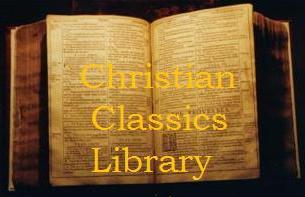3 Articles: Anglicans, Atheists, and Baptists
1) The Anglican choir of Westminster Abbey is travelling to Rome to sing for the Pope. Actually they sang with a Vatican choir at Vespers last night and a Pontifical Mass today, which is the feast of St. Peter and St. Paul (and my birthday). Liturgically, Anglicans are quite similar to Roman Catholics, and musically Anglicans are (in my opinion) the jewel of all Christendom. This sort of ecumenism - actually praying and worshiping together and sharing our in our liturgical treasures together is every bit as important as joint theological statements for the growth of ecumenical unity throughout God's one holy church.
------------
2) This next one is a bit old now, but I couldn't let it pass without comment: Atheists "Rally for Reason" and are urged to mock religious believers. Rather than advocating being logical and reasonable, Richard Dawkins seems to be advocating a smear campaign religious people that wields appeals to emotion and logical fallacies rather than actual reasoning. Anyone else find the irony of all this disturbing? Excerpt below:
Thousands of atheists showed up at the National Mall Saturday for what they believe will be a game-changing event for secularists. Though the Reason Rally was billed as a celebration of reason and a "coming out" event for atheists, as opposed to an anti-religion one, some viewed it as the latter.
"They said it wasn't going to be anti-God but all the signs are. So it doesn't fit because they're really not rallying for reason. They just say they are," said Tom Gilson, a writer and missions strategist.
Richard Dawkins, author of the best-selling The God Delusion, was the most anticipated and well-known speaker at the rally. In his brief address, Dawkins encouraged fellow atheists to ridicule those who claim to be religious.
I can't help but wonder if Richard Dawkins is simply an angry person. I wonder if he is aware that new research (see the book How God Changes Your Brain) suggests that religious practices of deep prayer and meditation can help build compassion? There may be another sad irony there.
------------
3) Finally, I recently heard that, in the days leading up to the meeting of the Southern Baptist Convention (SBC) in New Orleans the on-going debate between the Calvinist and non-Calvinist factions of the SBC has flaired up to the point of heresy charges being hurled by the Calvinst side against a statement issued by some of the non-Calvinists.
The statement opposing Calvinism states that:
"We deny that Adam's sin resulted in the incapacitation of any person's free will." Calvinist Baptists have charged that this is an example of (semi-)Pelagianism, which was condemned as a heresy by the ancient church (though these Baptists depart from the ancient church on quite a number of issues and it is interesting that they would turn to the early fathers as authoritative in their opposition to the other group).
Paige Patterson, president of Southwestern Baptist Theological Seminary, denies the charge.
"We are obviously not semi-Pelagians," Patterson said. "We do believe that the entire human race is badly affected by the fall of Adam. However, we don't follow the Reformed view that man is so crippled by the fall that he has no choice."
Patterson didn't assist in the framing of the document, but was one of six former SBC presidents and two SBC seminary presidents to affirm it.
I've tried to be a bit more careful in tossing around the charge of "heresy" myself, though I certainly recognize the very real danger that heresy represents to the health, mission, and unity of the church. It seems to me that the statement above does at least sound like it could be some kind of Semi-Pelagianism, which is heretical, or at least slipping that way.
Now many of my Methodist readers might be surprised to read this and think "But don't we believe that humans have free will as well?" Actually, Wesleyan theology completely agrees with Calvin (and Luther and St. Augustine) on this point: our will is completely broken and corrupted by Original Sin. However, where Calvin thought this situation required that God should choose for us who would receive salvation and who would not (predestination), Wesley emphasized that we, because our wills are corrupted, require the aid of God's "prevenient grace" - the strengthening grace of God that is given to every person to allow us, ins pite of sin-sick wills, to choose freely whether to submit to or even to reject the Gospel summons that Christ gives to every person. You might say we believe in grace-enabled free choice, but not in a naturally free will.
As part of this whole theological debate within the SBC I can report that the SBC did "affirm" the use of the Sinners' Prayer, that some (especially Calvinist) Baptists argued was part of an unBiblical folk religion that developed in American Evangelicalism. I would add (along with Calvin, actually) that what Jesus gave us according to the Bible to initiate us into him was not "the Sinners' Prayer" but actually the Sacraments of Baptism and Holy Communion (see Rom. 6 and John 6, for example).
I would, however, also point out that the Sinners' Prayer - in its most basic form - can be a legitimate form of piety that does have some Biblical precedents (such as Luke 18:13 and Mark 10:48) and, like these passages, closely resembles what the Eastern Christian Tradition calls "The Jesus Prayer" ("Lord Jesus Christ, Son of God: Have mercy upon me, a sinner. Amen.") which I frequently use in my own praying. The Jesus Prayer, unlike The Sinners' Prayer, is one that we must return to again and again: it is not intended as a "one time conversion" prayer but a prayer for continuous aid from the Savior, and continuous conversion and conformity to him.
Labels: Anglicanism, Baptist stuff, Christian Unity, Cultural issues, Roman Catholicism, Theology and Ministry













